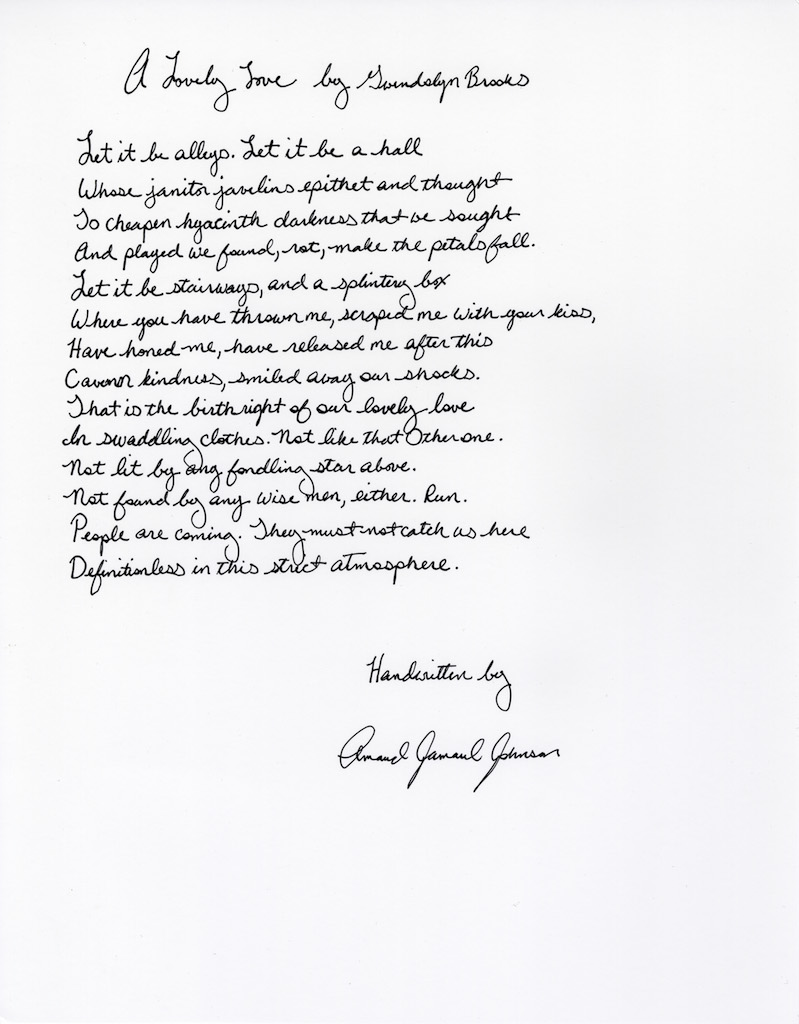—“Definitionless in this strict atmosphere”
I was twenty and an undergraduate at Howard University, taking Dr. Jon Woodson’s Survey of African American Poetry. He was suspicious of labels and spent the first weeks of class arguing against his own course title. His first lecture began with a summary dismissal of Maya Angelou, who a year earlier was Bill Clinton’s Inaugural Poet. He would hand out poems with the authors’ names blacked out, and ask: “What makes this a Black poem, or is this good or bad?” We had to defend our answers. Our shortcomings were immediately evident. This is how I was introduced to Gwendolyn Brooks’s “A Lovely Love.”
At first blush, I was equally confused and excited. It’s a sonnet! Case closed. But the rhyme scheme is off, and it has both a volta and a parting couplet, elements of Petrarchan and Elizabethan sonnet traditions. It’s a hybrid, a fused form, it dances between two worlds, two traditions. Part Montague, part Capulet. It breaks rules without abandoning them. I knew I was in over my head. I felt the way a child feels when in the middle of a “grown folks” conversation. I also noticed the music: the anaphora, alliteration, assonance, and end rhyme. If I struggled with the structure, I was doubly confused about the subject. The love here is born of The Blues Tradition. It’s full of pleasure and pain. Its speaker has a devil-may-care attitude: “Let it be…Let it be.” The circumstances are not ideal, but these lovers can’t control their environment. This is a dark sweetness: “caverned kindness,” “hyacinths,” “halls,” and “alleys,” where the body is “scraped” and “honed” and “shocked.” Yes, it’s dangerous and desperate, but I can hear Bessie Smith, Shirley Murdock, or Rick James and Teena Marie’s “Fire and Desire.”
The “Other” love, “lit by a fondling star,” condoned “by wise men,” while Divine, while Immaculate, is sexless. Brooks is praying at a different altar. This poem is my Rosetta Stone, how I learned the significance of unity of purpose in poetry. It’s perfectly messy. If Blackness is anything, it’s equal parts an act of self-love and a form of resistance.




